 Tìm kiếm
Tìm kiếm
Chương VI Hiến pháp 2013: Chủ tịch nước
| Số hiệu: | khongso | Loại văn bản: | Hiến pháp |
| Nơi ban hành: | Quốc hội | Người ký: | Nguyễn Sinh Hùng |
| Ngày ban hành: | 28/11/2013 | Ngày hiệu lực: | 01/01/2014 |
| Ngày công báo: | 29/12/2013 | Số công báo: | Từ số 1003 đến số 1004 |
| Lĩnh vực: | Bộ máy hành chính, Quyền dân sự | Tình trạng: | Còn hiệu lực |
TÓM TẮT VĂN BẢN
Một số điểm mới trong Hiến pháp 2013
Ngày 28/11/2013, Quốc hội đã thông qua Hiến pháp 2013 và Nghị quyết 64/2013/QH13 quy định một số điểm thi hành Hiến pháp 2013.
Theo đó, Hiến pháp 2013 có hiệu lực kể từ ngày 01/01/2014 và có nhiều điểm mới so với Hiến pháp 1992 (Chỉ giữ nguyên 7 điều, bổ sung 12 điều mới và sửa đổi 101 điều), đương cử như:
- Chương X là quy định mới hoàn toàn về Hội đồng bầu cử quốc gia, Kiểm toán nhà nước;
- Ghi nhận quyền sống; quy định quyền hiến mô, bộ phận cơ thể người, hiến xác;
- Mọi người có quyền tự do kinh doanh trong những ngành nghề mà pháp luật không cấm (đây là quy định tiến bộ so với Hiến pháp 1992);
Đồng thời quy định, các văn bản pháp luật ban hành trước ngày 01/01/2014 phải được rà soát lại để sửa đổi, bổ sung hoặc ban hành mới cho phù hợp với Hiến pháp 2013.
Việc sửa đổi Luật tổ chức Quốc hội, Chính phủ, Tòa án nhân dân; ban hành mới Luật tổ chức chính quyền địa phương… phải được trình Quốc hội xem xét thông qua chậm nhất vào tháng 10/2015.
Văn bản tiếng việt
Văn bản tiếng anh
Chủ tịch nước là người đứng đầu Nhà nước, thay mặt nước Cộng hòa xã hội chủ nghĩa Việt Nam về đối nội và đối ngoại.
Chủ tịch nước do Quốc hội bầu trong số đại biểu Quốc hội.
Chủ tịch nước chịu trách nhiệm và báo cáo công tác trước Quốc hội.
Nhiệm kỳ của Chủ tịch nước theo nhiệm kỳ của Quốc hội. Khi Quốc hội hết nhiệm kỳ, Chủ tịch nước tiếp tục làm nhiệm vụ cho đến khi Quốc hội khóa mới bầu ra Chủ tịch nước.
Chủ tịch nước có những nhiệm vụ và quyền hạn sau đây:
1. Công bố Hiến pháp, luật, pháp lệnh; đề nghị Ủy ban thường vụ Quốc hội xem xét lại pháp lệnh trong thời hạn mười ngày, kể từ ngày pháp lệnh được thông qua, nếu pháp lệnh đó vẫn được Ủy ban thường vụ Quốc hội biểu quyết tán thành mà Chủ tịch nước vẫn không nhất trí thì Chủ tịch nước trình Quốc hội quyết định tại kỳ họp gần nhất;
2. Đề nghị Quốc hội bầu, miễn nhiệm, bãi nhiệm Phó Chủ tịch nước, Thủ tướng Chính phủ; căn cứ vào nghị quyết của Quốc hội, bổ nhiệm, miễn nhiệm, cách chức Phó Thủ tướng Chính phủ, Bộ trưởng và thành viên khác của Chính phủ;
3. Đề nghị Quốc hội bầu, miễn nhiệm, bãi nhiệm Chánh án Tòa án nhân dân tối cao, Viện trưởng Viện kiểm sát nhân dân tối cao; căn cứ vào nghị quyết của Quốc hội, bổ nhiệm, miễn nhiệm, cách chức Thẩm phán Tòa án nhân dân tối cao; bổ nhiệm, miễn nhiệm, cách chức Phó Chánh án Tòa án nhân dân tối cao, Thẩm phán các Tòa án khác, Phó Viện trưởng, Kiểm sát viên Viện kiểm sát nhân dân tối cao; quyết định đặc xá; căn cứ vào nghị quyết của Quốc hội, công bố quyết định đại xá;
4. Quyết định tặng thưởng huân chương, huy chương, các giải thưởng nhà nước, danh hiệu vinh dự nhà nước; quyết định cho nhập quốc tịch, thôi quốc tịch, trở lại quốc tịch hoặc tước quốc tịch Việt Nam;
5. Thống lĩnh lực lượng vũ trang nhân dân, giữ chức Chủ tịch Hội đồng quốc phòng và an ninh, quyết định phong, thăng, giáng, tước quân hàm cấp tướng, chuẩn đô đốc, phó đô đốc, đô đốc hải quân; bổ nhiệm, miễn nhiệm, cách chức Tổng tham mưu trưởng, Chủ nhiệm Tổng cục chính trị Quân đội nhân dân Việt Nam; căn cứ vào nghị quyết của Quốc hội hoặc của Ủy ban thường vụ Quốc hội, công bố, bãi bỏ quyết định tuyên bố tình trạng chiến tranh; căn cứ vào nghị quyết của Ủy ban thường vụ Quốc hội, ra lệnh tổng động viên hoặc động viên cục bộ, công bố, bãi bỏ tình trạng khẩn cấp; trong trường hợp Ủy ban thường vụ Quốc hội không thể họp được, công bố, bãi bỏ tình trạng khẩn cấp trong cả nước hoặc ở từng địa phương;
6. Tiếp nhận đại sứ đặc mệnh toàn quyền của nước ngoài; căn cứ vào nghị quyết của Ủy ban thường vụ Quốc hội, bổ nhiệm, miễn nhiệm; quyết định cử, triệu hồi đại sứ đặc mệnh toàn quyền của Cộng hòa xã hội chủ nghĩa Việt Nam; phong hàm, cấp đại sứ; quyết định đàm phán, ký điều ước quốc tế nhân danh Nhà nước; trình Quốc hội phê chuẩn, quyết định gia nhập hoặc chấm dứt hiệu lực điều ước quốc tế quy định tại khoản 14 Điều 70; quyết định phê chuẩn, gia nhập hoặc chấm dứt hiệu lực điều ước quốc tế khác nhân danh Nhà nước.
1. Hội đồng quốc phòng và an ninh gồm Chủ tịch, Phó Chủ tịch và các Ủy viên. Danh sách thành viên Hội đồng quốc phòng và an ninh do Chủ tịch nước trình Quốc hội phê chuẩn.
Hội đồng quốc phòng và an ninh làm việc theo chế độ tập thể và quyết định theo đa số.
2. Hội đồng quốc phòng và an ninh trình Quốc hội quyết định tình trạng chiến tranh, trường hợp Quốc hội không thể họp được thì trình Ủy ban thường vụ Quốc hội quyết định; động viên mọi lực lượng và khả năng của đất nước để bảo vệ Tổ quốc; thực hiện những nhiệm vụ, quyền hạn đặc biệt do Quốc hội giao trong trường hợp có chiến tranh; quyết định việc lực lượng vũ trang nhân dân tham gia hoạt động góp phần bảo vệ hòa bình ở khu vực và trên thế giới.
Chủ tịch nước có quyền tham dự phiên họp của Ủy ban thường vụ Quốc hội, phiên họp của Chính phủ.
Chủ tịch nước có quyền yêu cầu Chính phủ họp bàn về vấn đề mà Chủ tịch nước xét thấy cần thiết để thực hiện nhiệm vụ, quyền hạn của Chủ tịch nước.
Chủ tịch nước ban hành lệnh, quyết định để thực hiện nhiệm vụ, quyền hạn của mình.
Phó Chủ tịch nước do Quốc hội bầu trong số đại biểu Quốc hội.
Phó Chủ tịch nước giúp Chủ tịch nước thực hiện nhiệm vụ và có thể được Chủ tịch nước ủy nhiệm thay Chủ tịch nước thực hiện một số nhiệm vụ.
Khi Chủ tịch nước không làm việc được trong thời gian dài thì Phó Chủ tịch nước giữ quyền Chủ tịch nước.
Trong trường hợp khuyết Chủ tịch nước thì Phó Chủ tịch nước giữ quyền Chủ tịch nước cho đến khi Quốc hội bầu ra Chủ tịch nước mới.
The President is the Head of State and shall represent the Socialist Republic of Vietnam internally and externally.
The President shall be elected by the National Assembly from among its deputies.
The President is responsible, and shall report on his or her work, to the National Assembly.
His or her term of office follows the term of the National Assembly. At the expiration of the term of the National Assembly, the President shall remain in office until a new President is elected by the succeeding National Assembly.
The President has the following tasks and powers:
1. To promulgate the Constitution, laws and ordinances; to request the Standing Committee of the National Assembly to reconsider its ordinances, within ten days of their passage; if those ordinances are still voted for by the Standing Committee of the National Assembly and disapproved by the President, the President shall refer the matter to the National Assembly for decision at its next session;
2. To propose to the National Assembly to elect, relieve from duty or remove from office the Vice President or Prime Minister; and, based on resolutions of the National Assembly, to appoint, relieve from duty or dismiss Deputy Prime Ministers, Ministers or other members of the Government;
3. To propose the National Assembly to elect, relieve from duty or remove from office the Chief Justice of the Supreme People's Court or Procurator General of the Supreme People's Procuracy; and, based on resolutions of the National Assembly, to appoint, relieve from duty or dismiss Judges of the Supreme People's Court; to appoint, relieve from duty or dismiss Deputy Chief Justices of the Supreme People's Court, Judges of other Courts or Deputy Procurators General or Procurators of the Supreme People's Procuracy; to decide on a special amnesty; or, based on resolutions of the National Assembly, to proclaim a general amnesty;
4. To decide on the award of orders, medals, state prizes or state honorary titles; to decide to permit naturalization in Vietnam, renunciation of Vietnamese citizenship, restoration of Vietnamese citizenship or deprivation of Vietnamese citizenship;
5. To assume command of the people’s armed forces and hold the office of Chairperson of the National Defense and Security Council; to decide on the award, promotion, demotion or deprivation of the ranks of general, naval rear admiral, naval vice admiral and naval admiral; to appoint, relieve from duty or dismiss the Chief of the General Staff or the Director of the Political General Department of the Vietnamese People’s Army; based on resolutions of the National Assembly or the Standing Committee of the National Assembly, to promulgate or annul decisions to declare a state of war; based on resolutions of the Standing Committee of the National Assembly, to issue an order on general mobilization or partial mobilization, to declare or cancel a state of emergency; or, in case the Standing Committee of the National Assembly cannot meet, to declare or cancel a state of emergency nationwide or in a particular locality;
6. To receive foreign ambassadors extraordinary and plenipotentiary; based on resolutions of the Standing Committee of the National Assembly, to appoint, relieve from duty; decide to send or recall ambassadors extraordinary and plenipotentiary of the Socialist Republic of Vietnam; to confer the ambassadorial title and rank; to decide on the negotiation and conclusion of treaties in the name of the State; to submit to the National Assembly for ratification of, or decision on the accession to, or withdrawal from, the treaties specified in Clause 14, Article 70; to decide on the ratification of, accession to, or withdrawal from, other treaties in the name of the State.
1. The National Defense and Security Council is composed of the Chairperson, Vice Chairperson and Members. The list of members of the National Defense and Security Council shall be submitted by the President to the National Assembly for approval.
The National Defense and Security Council shall work on a collegial basis and make its decisions by a vote of the majority.
2. The National Defense and Security Council shall propose the National Assembly or, when the National Assembly cannot meet, the Standing Committee of the National Assembly to decide on a state of war; mobilize all forces and capacity of the country to defend the Fatherland; perform special tasks and exercise special powers assigned to and vested in it by the National Assembly in case of war; and decide on the participation of the people’s armed forces in peacekeeping operations in the region and around the world.
The President may attend meetings of the Standing Committee of the National Assembly and meetings of the Government.
The President may request the Government to meet to discuss issues that he or she considers necessary to fulfill his or her tasks or exercise his or her powers.
The President shall issue orders and decisions for the performance of his or her tasks or the exercise of his or her powers.
The Vice President shall be elected by the National Assembly from among its deputies.
The Vice President shall assist the President in his or her work and may be delegated certain tasks by the President to perform on behalf of the President.
When the President is incapacitated from work over a long period of time, the Vice President shall succeed as acting President.
In case of vacancy of the Presidency, the Vice President shall serve as acting President until a new President is elected by the National Assembly.
Văn bản liên quan
Cập nhật
Bài viết liên quan
Tài sản gắn liền với đất gồm những loại nào? 02 tài sản gắn liền với đất được cấp sổ đỏ mới nhất 2025

Tài sản gắn liền với đất gồm những loại nào? 02 tài sản gắn liền với đất được cấp sổ đỏ mới nhất 2025
Tài sản gắn liền với đất là những tài sản không thể tách rời khỏi đất đai, thường có giá trị lớn và chịu sự quản lý chặt chẽ của pháp luật. Những tài sản này có thể được chuyển nhượng, cho thuê, thế chấp và có ảnh hưởng trực tiếp đến quyền sử dụng đất của chủ sở hữu. Cùng với sự phát triển của các quy định pháp lý, việc cấp Giấy chứng nhận quyền sử dụng đất (sổ đỏ) đối với những tài sản này cũng ngày càng rõ ràng hơn. Vậy, trong năm 2025, những tài sản gắn liền với đất nào sẽ được cấp sổ đỏ theo quy định mới nhất? Cùng tìm hiểu 02 loại tài sản gắn liền với đất được cấp sổ đỏ hiện nay. 09/12/2024Quyền sử dụng đất là gì? Quyền sử dụng đất được xếp vào tài sản loại nào?

Quyền sử dụng đất là gì? Quyền sử dụng đất được xếp vào tài sản loại nào?
Quyền sử dụng đất là gì và quyền sử dụng đất được xếp vào tài sản loại nào? Quyền sử dụng đất không chỉ liên quan đến việc sử dụng một diện tích đất mà còn gắn liền với những quyền lợi, nghĩa vụ pháp lý và các giao dịch tài chính. Việc xác định quyền sử dụng đất thuộc loại tài sản nào cũng đóng vai trò quan trọng trong việc áp dụng pháp luật, bảo vệ quyền lợi hợp pháp của người sử dụng đất. 06/12/2024Sử dụng bao lì xì in hình sổ đỏ bị phạt 3 năm tù có đúng không?

Sử dụng bao lì xì in hình sổ đỏ bị phạt 3 năm tù có đúng không?
Việc tặng lì xì là truyền thống quen thuộc của người Việt mỗi dịp Tết. Gần đây, bao lì xì in hình sổ đỏ trở nên phổ biến, nhưng cũng gây tranh cãi về tính hợp pháp. Liệu sử dụng bao lì xì sổ đỏ có vi phạm pháp luật hay không? 19/11/2024Phân tích các nguyên tắc cơ bản của luật lao động hiện nay ?

Phân tích các nguyên tắc cơ bản của luật lao động hiện nay ?
Nguyên tắc của ngành luật, theo quan niệm của lí luận chung về nhà nước và pháp luật, được hiểu là những nguyên lí, tư tưởng chủ đạo, mang tính xuất phát điểm xuyên suốt toàn bộ quá trình soạn thảo, ban hành, giải thích, thực thi, áp dụng pháp luật. 15/11/2024Sàm sỡ người khác có bị xem là vi phạm pháp luật hay không?

Sàm sỡ người khác có bị xem là vi phạm pháp luật hay không?
Thỉnh thoảng ở nơi công cộng hay nơi làm việc một số bạn, đặc biệt là nữ thường gặp phải những trường hợp bị sàm sỡ, bị quấy rối tình dục bởi những tên “yêu râu xanh” hay chính sếp của mình. Nhiều bạn cảm thấy hoảng loạn, lo sợ và ngại nói ra nhưng không biết phải giải quyết vấn đề này như thế nào? 15/11/2024Những quy định mới về quyền con người trong Hiến pháp năm 2013
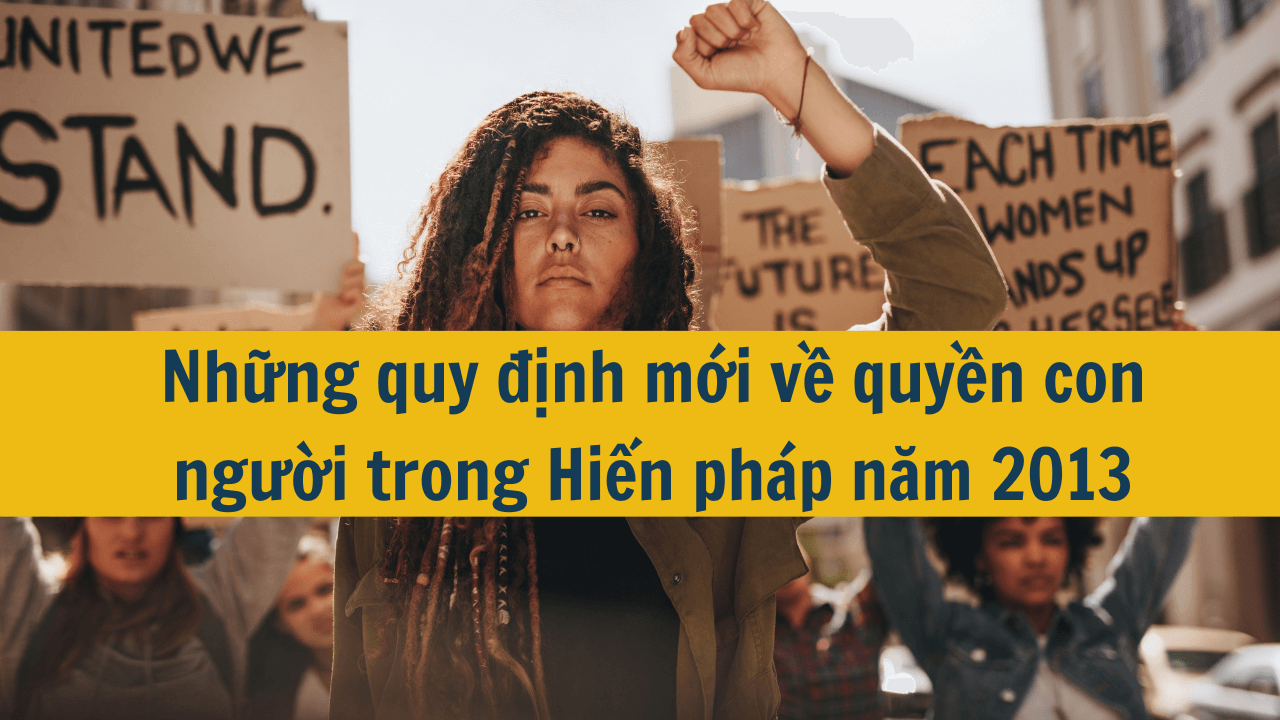
Những quy định mới về quyền con người trong Hiến pháp năm 2013
Hiến pháp năm 2013 đã đặt nền móng cho thời kỳ đẩy mạnh hội nhập quốc tế và phát triển của đất nước ta. So với các bản hiến pháp trước đây, đặc biệt là Hiến pháp 1992, Hiến pháp 2013 có những phát triển mới trong chế định về quyền con người 20/11/2024Quy định pháp luật về quyền chủ tịch nước năm 2024
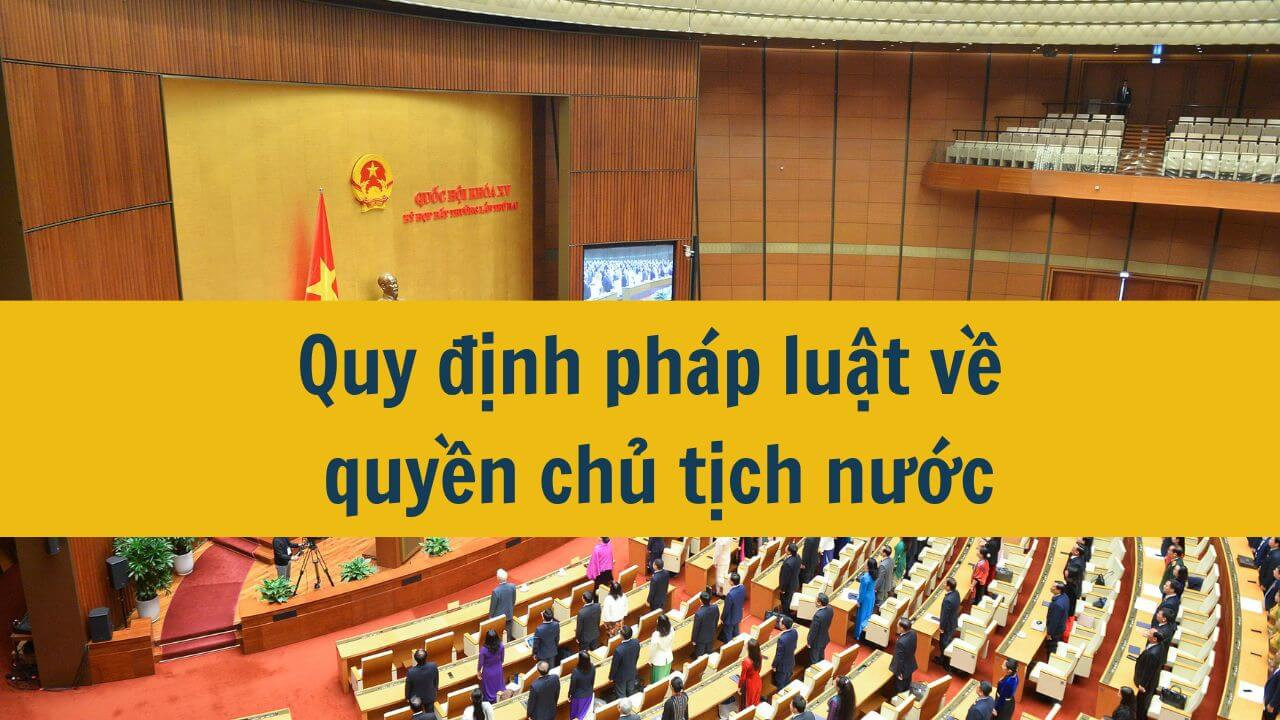
Quy định pháp luật về quyền chủ tịch nước năm 2024
Quyền chủ tịch nước là một khái niệm trong các văn bản pháp luật và thảo luận chính trị. Thực tế trong một số hoàn cảnh nhằm đảm bảo an ninh, ổn định và phát triển của đất nước, cần có người thay Chủ tịch nước giữ quyền Chủ tịch nước. Việc làm sáng tỏ các quy định pháp luật liên quan đến quyền chủ tịch nước sẽ giúp nâng cao nhận thức của người dân về vai trò của Nhà nước trong đời sống xã hội. 12/11/2024Thủ tướng Chính phủ Nước Cộng hòa xã hội chủ nghĩa Việt Nam do ai bầu ra?
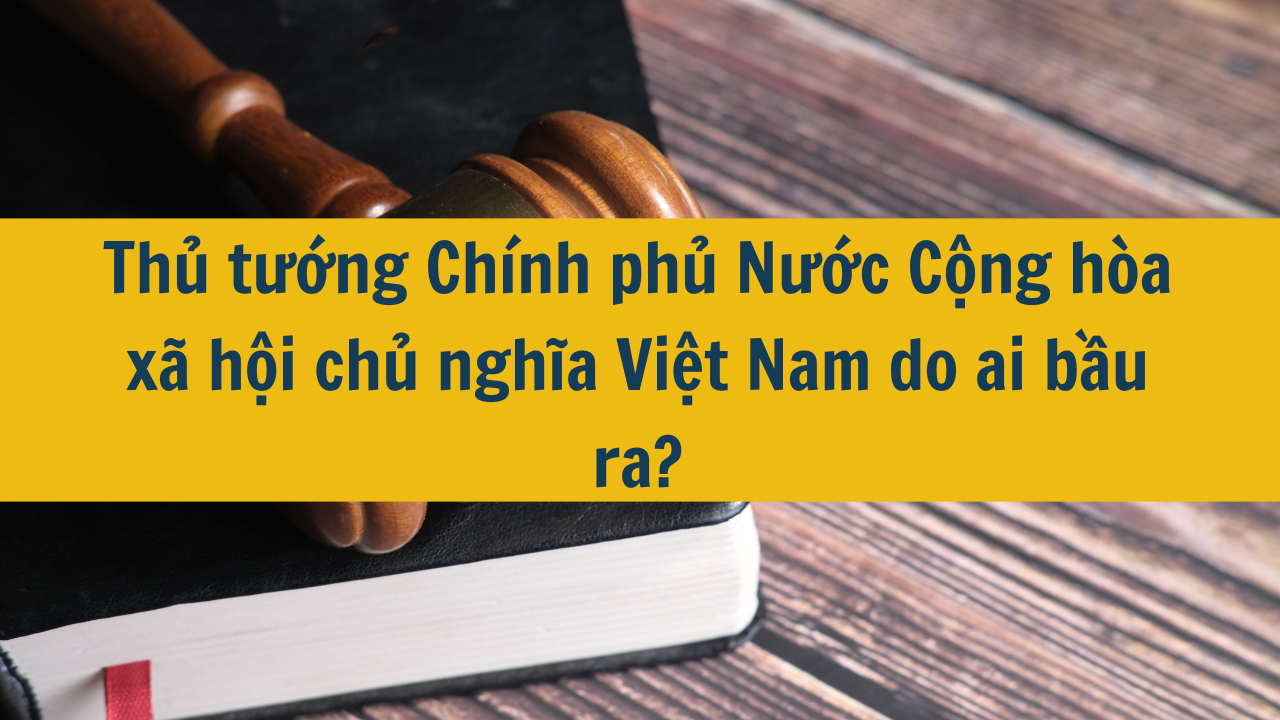
Thủ tướng Chính phủ Nước Cộng hòa xã hội chủ nghĩa Việt Nam do ai bầu ra?
Trong bài viết này, chúng ta sẽ cùng khám phá một câu hỏi quan trọng về hệ thống chính trị Việt Nam. "Thủ tướng Chính phủ Nước Cộng hòa xã hội chủ nghĩa Việt Nam do ai bầu ra?" Qua đó, bài viết sẽ cung cấp cái nhìn tổng quan về quy trình bầu cử Thủ tướng, vai trò của Quốc hội trong việc xác nhận các chức danh lãnh đạo, cũng như ý nghĩa của cơ chế này đối với sự phát triển và ổn định của đất nước. 10/11/2024Cơ cấu tổ chức của Chính phủ nước Cộng hòa xã hội chủ nghĩa Việt Nam? Người đứng đầu Chính phủ là ai?
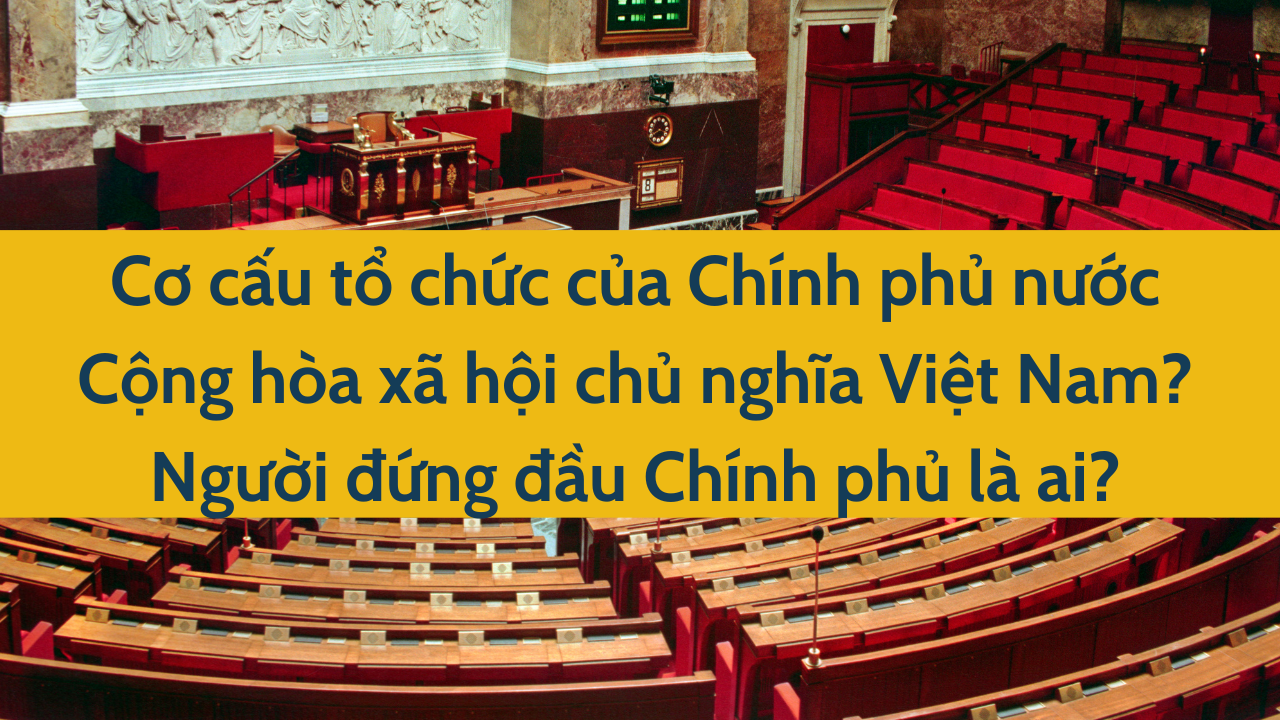
Cơ cấu tổ chức của Chính phủ nước Cộng hòa xã hội chủ nghĩa Việt Nam? Người đứng đầu Chính phủ là ai?
Chính phủ nước Cộng hòa xã hội chủ nghĩa Việt Nam đóng vai trò then chốt trong việc quản lý và điều hành các hoạt động của nhà nước, đảm bảo thực hiện các chính sách phát triển kinh tế, xã hội và bảo vệ an ninh quốc phòng. Cơ cấu tổ chức của Chính phủ được xây dựng nhằm đáp ứng hiệu quả yêu cầu công việc trong bối cảnh phát triển đất nước. Trong bài viết này, chúng ta sẽ khám phá chi tiết về cơ cấu tổ chức của Chính phủ Việt Nam, cũng như vai trò và trách nhiệm của người đứng đầu Chính phủ, từ đó hiểu rõ hơn về sự lãnh đạo và quản lý trong hệ thống chính trị của nước ta. 25/09/2024Thẩm quyền của Tổng Bí thư và Chủ tịch nước?
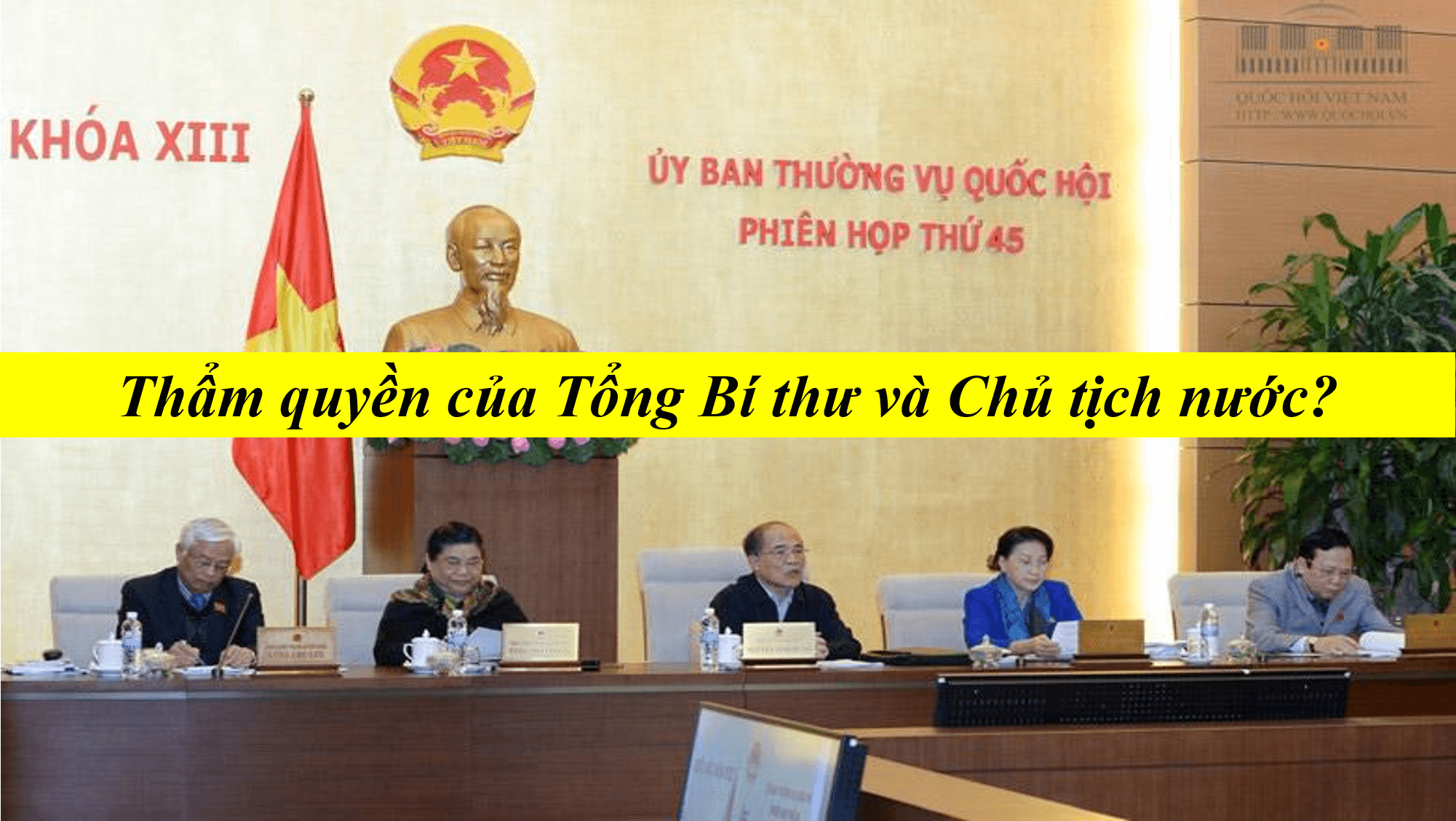

 Hiến pháp 2013 (Bản Word)
Hiến pháp 2013 (Bản Word)
 Hiến pháp 2013 (Bản Pdf)
Hiến pháp 2013 (Bản Pdf)